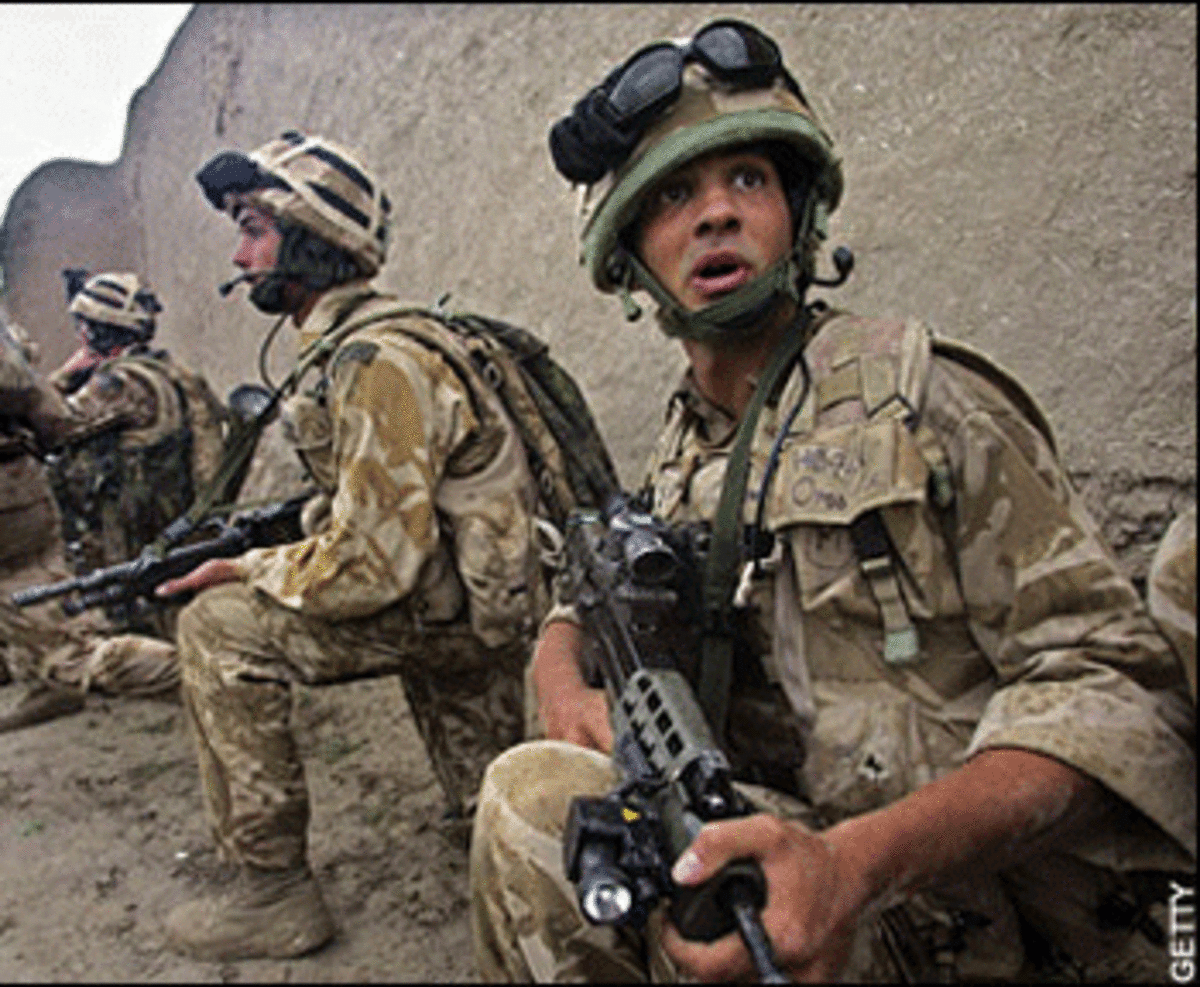 In the realm of stalemate/quagmire:
In the realm of stalemate/quagmire:
But after nearly eight years of fighting in Afghanistan, the war’s strategic rationale still remains tenuous. Central Asia holds little intrinsic strategic value to the United States, and America’s security will not necessarily be endangered even if an oppressive regime takes over a contiguous fraction of Afghan territory. Given Afghanistan’s numerous challenges, and the fact that a protracted guerrilla war will weaken the United States militarily and economically, the fundamental objective should be to get out of Afghanistan.
(Illustration found here).
As the USÂ eased its ass into Vietnam — the first US combat mission, Operation Chopper, occurred Jan. 12, 1962 — the media, much less the general public, had not a shit-thread of a clue of what had been developing in Southeast Asia. In 1955, with the help of massive amounts of American military, political, and economic aid, the Government of the Republic of Vietnam (GVN or South Vietnam) was born.
And where nearly 60,000 US GIs would eventually die due to the lying arrogance of America’s leaders.
No one back home, back ‘In the World,’ understood, but veterans knew the score.
From the VVAW:
As GIs in Vietnam we saw the often-stark realities of Vietnam and could compare them to the “truth” the American people were being told.
We saw the corrupt Saigon generals making money hand over fist while their armies would not fight.
We saw the hate in the eyes of the local villagers who never welcomed us as “liberators” bringing us bouquets of flowers as we had seen in World War II movies.
The only Vietnamese who seemed to want us there wanted greenbacks in return for drugs, booze or women, or all three.
We also saw the enemy fight and had to admire both his bravery and tenacity in taking on U.S. tanks, planes and helicopters with grenades and rifles.
We supposedly valued human life while our enemy did not.
Yet we paid the owners of the Michelin plantations $600 for each rubber tree we damaged, while the family of a slain Vietnamese child got no more than $120 in payment for a life.
Nowadays, there’s a strong backstory on Afghanistan.
“When you’re wounded and left on Afghanistan’s plains
And the women come out to cut up what remains
Jest roll to your rifle and blow out your brains
An’ go to your Gawd like a soldier
Go, go, go like a soldier
Go, go, go like a soldier,
Go, go, go like a soldier,
So-oldier of the Queen!
— Rudyard Kipling “The Young British Soldier“
Kipling, bard of the late, great British Empire, was referencing the Brits continual horror in Afghanistan — they were beaten three times, in 1839, 1878, and then again in 1919 (though it was considered a tactical ‘win’ for the UK that last time) before they could get the message.
And in the more-recent of history, the USSR.
The Soviets knew, however, in the early stages of the invasion, the war was un-winnable: The realization that there could be no military solution to the conflict in Afghanistan came to the Soviet military leadership very early on. The issue of troop withdrawal and the search for a political solution was discussed as early as 1980, but no real steps in that direction were taken, and the Limited Contingent continued to fight in Afghanistan without a clearly defined objective.
For another near-nine years before calling it quits — bringing on the end to the age of the Soviet.
So along comes the US of A in 2001 and near-nine years later, nothing.
Except for 669 US troops killed there (along with a shitload of civilians, especially at weddings and funerals), bringing the total for both disastrous wars (Iraq and Afghanistan) to 5,002 as of Tuesday.
The US, full of 9/11 hubris, began airstrikes Oct. 7, 2001 against Taliban and al-Qaida targets.
And with the fall of Kabul on Nov. 13, 2001, the Taliban retreated from most of northern Afghanistan, and for the next near-five years, the conflict was pushed to a far, back burner.
Now the stove is hot, real hot again, and with it the memories of the Queen’s Guards and the Soviet troopers, getting slaughtered.
Even Defense honcho Bob Gates knows some kind of endgame is approaching: Gates said that victory was a “long-term prospect” under any scenario and that the U.S. would not win the war in a year’s time. However, U.S. forces must begin to turn the situation around in a year, he said, or face the likely loss of public support.
“After the Iraq experience, nobody is prepared to have a long slog where it is not apparent we are making headway,” Gates said in an interview. “The troops are tired; the American people are pretty tired.”
Sick and damn-tired, I’d probably say.
Malou Innocent, from the piece quoted at the top of this post, laments the US should have already lessened its presence in the region:
Perhaps most troubling about the reflexive “stay the course” mentality of some Americans is the widespread insensitivity about the thousands of people — civilian and military, domestic and foreign — killed, maimed, and traumatized in war.
But history shows that, sooner or later, disenchantment will manifest in public and congressional attitudes. After nearly a decade in Afghanistan, even the memory of 9/11 might not be sufficient to outweigh the sacrifice in blood and treasure.
…
Unfortunately, bureaucratic inertia and a misplaced conception of Washington’s moral obligations (an argument that more often than not legitimizes America’s military occupation of a foreign people) threaten to trap the United States in Afghanistan for decades.
Overall, remaining in Afghanistan is more likely to tarnish America’s reputation and undermine U.S. security than would withdrawal.
Yes, that all-encompassing factor — ‘history shows‘ — but will it be too late?